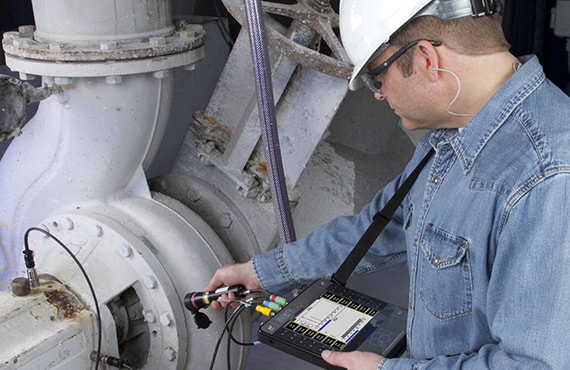EN 81-20 – Elevator Brake Functionality Test
The EN 81-20 standard is a European safety guideline that ensures the reliability and functionality of elevator braking systems. This test is crucial as it directly impacts passenger and worker safety in the oil & gas sector, where heavy loads and stringent safety regulations are paramount.
The primary focus of this test is to validate the operational integrity of elevator brakes under various conditions. It involves subjecting the brake system to a series of predefined stress tests that simulate real-world scenarios. The goal is to ensure that the braking mechanism can perform reliably in critical situations, such as sudden power failures or mechanical malfunctions.
The testing procedure includes several key steps: pre-test inspection, application of load, measurement of deceleration rate, and post-test evaluation. Pre-test inspections involve checking for any visible damage or anomalies in the brake components. Once the system is deemed safe to test, a calibrated load is applied to simulate the weight of passengers and cargo. The deceleration rate is then measured under controlled conditions. Finally, after the load is removed, the brake's ability to hold the load is evaluated.
The acceptance criteria for this test are based on international standards such as EN 81-20:2015. These criteria specify that the braking system must achieve a minimum deceleration rate within a specified time frame. Failure to meet these criteria indicates potential issues with the brake's performance, which could lead to accidents or malfunctions.
In the oil & gas sector, where lifts and elevators are often used to transport heavy equipment and personnel over long distances, the reliability of elevator brakes is essential. Any failure in the braking system can result in catastrophic consequences, including loss of life and significant property damage. Therefore, compliance with EN 81-20 is mandatory for all oil & gas facilities that use elevators.
Compliance officers must ensure that their facilities undergo regular testing to meet these standards. This not only enhances safety but also ensures regulatory compliance, which can help avoid costly fines and legal issues. For R&D engineers, this test provides an opportunity to innovate and improve brake technology, making it more efficient and reliable.
Quality managers play a crucial role in overseeing the entire testing process to ensure that all steps are followed accurately. They must also maintain detailed records of each test, which can be used for future reference or in case of regulatory audits.
Why It Matters
The safety and reliability of elevator brake functionality is not only a matter of compliance but also a critical factor in maintaining operational efficiency. In the oil & gas sector, where heavy lifting and personnel movement are common, any failure in the braking system can lead to severe accidents. This could result in injury or death, as well as significant downtime and increased maintenance costs.
Compliance with EN 81-20 ensures that elevators meet stringent safety standards, reducing the risk of accidents. By implementing this test regularly, facilities can identify potential issues before they escalate into major problems. This proactive approach not only enhances safety but also helps maintain a positive reputation for reliability and professionalism.
The oil & gas sector operates in harsh environments where equipment must be robust and dependable. Elevator brake functionality tests are an integral part of this process, ensuring that the braking systems can withstand the rigors of daily operations. Regular testing allows facilities to catch any wear or tear early on, preventing costly repairs and replacements.
For quality managers, compliance officers, and R&D engineers, adhering to EN 81-20 is essential for maintaining a safe working environment and ensuring regulatory compliance. By focusing on the functionality of elevator brakes, they contribute to the overall safety and efficiency of oil & gas operations.
Industry Applications
| Application Area | Description |
|---|---|
| Elevator Maintenance | Regular testing ensures that elevators are in optimal working condition, reducing the risk of accidents. |
| Construction Sites | The test is crucial for ensuring safety during the construction phase when heavy loads are moved frequently. |
| Oil & Gas Facilities | Ensures that elevators used in oil & gas operations meet stringent safety standards, preventing accidents and injuries. |
| Hospitals | Compliance is essential to maintain a safe environment for patients and staff. Elevator brake functionality tests are conducted regularly. |
- Elevator Brake Functionality Testing: Ensures that the braking system can hold the load under specified conditions.
- Load Deceleration Rate Measurement: Measures how quickly the elevator comes to a stop, ensuring it meets safety standards.
- Post-Test Evaluation: Evaluates the brake's performance after the test to identify any potential issues.
The testing process is designed to simulate real-world scenarios, making it an effective tool for maintaining safety and reliability. Elevator brake functionality tests are a critical component of the overall maintenance program in various applications, ensuring that elevators operate safely and efficiently.
Environmental and Sustainability Contributions
The EN 81-20 elevator brake functionality test contributes positively to environmental sustainability by promoting safe and efficient operation of lifts and elevators. By ensuring that brakes function reliably, the risk of accidents is minimized, which in turn reduces the need for emergency repairs and replacements.
Regular testing also helps extend the lifespan of elevator components, reducing waste and the environmental impact associated with frequent replacements. This proactive approach to maintenance supports sustainable practices within the oil & gas sector, where minimizing downtime and maximizing efficiency are key priorities.
The reliability of elevator brakes is crucial for maintaining a safe working environment, which can lead to reduced insurance premiums and operational costs. By adhering to EN 81-20 standards, facilities demonstrate their commitment to both safety and sustainability, contributing positively to the overall well-being of their communities.





